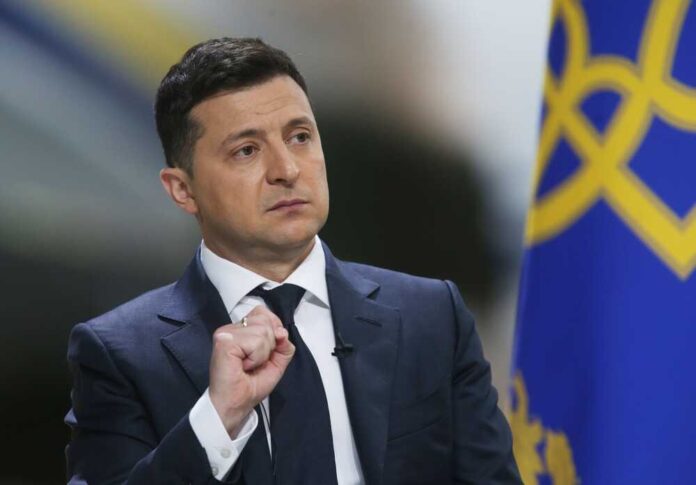
The International Monetary Fund (IMF) recently approved a $15.6 billion loan package to Ukraine, expressing confidence in the country’s economy. The loan program will run for four years, with the initial 12 to 18 months focusing on helping Ukraine address its massive budget deficit and easing the pressure to print money. This unprecedented move comes as Ukraine is still engaged in conflict, marking a departure from previous IMF policies.
While the Ukrainian finance ministry commends the loan program to mobilize support from international partners and maintain macro-financial stability, the country’s ongoing struggle with corruption cannot be ignored. Transparency International has ranked Ukraine as Europe’s second most corrupt country, after Russia, and 116th worldwide. Moreover, these rankings have barely improved since 2021, raising questions about the efficacy of the country’s anti-corruption measures.
The Washington-based International Monetary Fund (IMF) agreed to release a $15.6 billion loan package to Ukraine on Wednesday while reassuring contributors Kyiv has strong economic policies and is “fighting corruption.” https://t.co/ak5zDqVA9T
— Breitbart News (@BreitbartNews) March 22, 2023
Before the ongoing conflict, Ukraine reportedly made some progress in reforming its banking system and increasing transparency in government contracts. However, the country still suffers from the influence of wealthy oligarchs and slow progress in legal system reform. Despite preliminary consultations with the Islow that the government has made progress in strengthening governance, anti-corruption, and the rule of law, the extent of reforms remains significant.
President Volodymyr Zelenskyy has faced numerous allegations of corruption within his administration. In January, nine senior government officials were purged from office, including four deputy ministers and five regional governors. These dismissals followed months of allegations that top Ukrainian leaders profited from the ongoing conflict, purchased military supplies at inflated prices, and indulged in luxury vacations as the nation fought against Russia’s invasion.
Zelenskyy’s response to these allegations has been to pledge to eradicate corruption within Ukraine’s leadership publicly. However, the wartime scandal confirms the criticisms that have plagued his administration since its inception. With the IMF loan package, the Ukrainian government faces pressure to demonstrate accountability for the aid, particularly given the country’s ongoing corruption issues.
The massive budget deficit, fueled by increased military spending and a 30% shrink in the economy, has been covered by external financing from the U.S., the EU, and other allies. This aid has helped Ukraine move away from reliance on central bank-printed money, a necessary emergency measure early in the conflict but one that could have severe consequences if prolonged.
As the loan program moves forward, Ukraine should be demanded to demonstrate its commitment to transparency, good governance, and anti-corruption measures. The IMF’s confidence in Ukraine’s economic policies and anti-corruption efforts should be matched by the government’s dedication to tackling the corruption that has marred its reputation.













